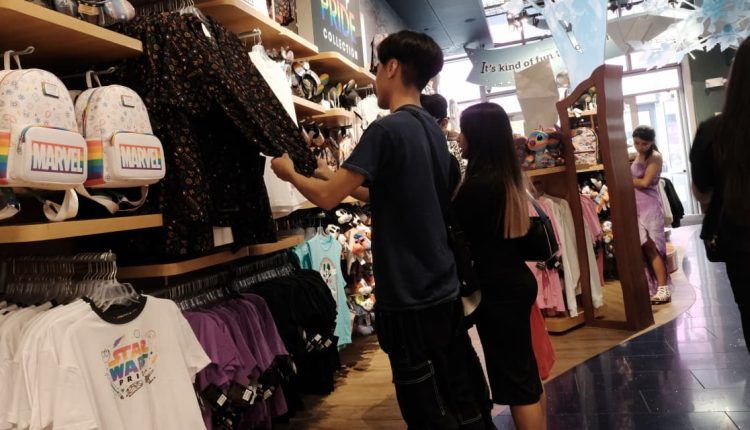Retail sales came in above economists’ expectations for the second month in a row. But while consumer spending seems robust on the surface, there are signs that shoppers are still under pressure.
Retail sales surged 0.6% month over month in August, above economists’ expectations for a 0.1% increase, according to the Census Bureau. July’s figure was revised down, to a gain of 0.5% from 0.7%.
While the headline figure barreled past expectations, there were underlying signs that consumers are starting to pull back on spending.
For one, a good portion of the surge in the headline number can be chalked up to higher gas prices. Stripping away auto and fuel categories, sales rose by 0.2%. Economists surveyed by FactSet were expecting a 0.3% rise. Sales at gasoline stations rose by 5.2% in August from July, the biggest monthly increase in the report.
Sales in the so-called retail sales control group, which excludes cars, gasoline, building materials, and food services, and feeds into the calculation of gross domestic product, also came in below expectations. Control sales were 0.1%, below forecasts for a 0.2% increase.
Moreover, total sales in August increased by 2.5% from a year ago, extending a marked deceleration in year-over-year retail-sales growth. In January, retail sales increased by 6.4% from a year ago.
“Looking at the broader trend, consumer spending has decelerated markedly,” wrote Lydia Boussour, senior economist at EY-Parthenon, in an email to Barron’s.
Stores selling sporting goods and hobby equipment, home furnishings, and miscellaneous items saw the biggest sales declines. Clothing and electronic stores saw the largest spending increases outside of gas-station sales, up 0.9% and 0.7%, respectively.
“We continue to see stronger results in need over wants,” said Mari Shor, senior equity analyst at Columbia Threadneedle Investments. “Looking at things like auto parts, grocery, health and wellness, they all continue to post stronger results than what we’re seeing in more discretionary categories, which I think just shows you that the consumer is not totally out of the woods yet.”
Sticky inflation remains a persistent challenge for many consumers, especially now that unemployment is ticking up. The consumer price index recorded a 3.7% year-over-year increase in August, up from July’s 3.2% pace, according to data released Wednesday. A spike in gasoline prices helped drive up the headline inflation figure last month.
It also soured Americans’ perspective. Both consumer sentiment and consumer confidence—metrics that gauge how people are feeling about the economy—fell in August, reversing the gains from earlier this summer.
Inflation also has been driving strong retail sales. The data isn’t adjusted for inflation so rising prices will push retail sales higher, even though sales volumes, or the amount of things people bought, were lower. Now that inflation is cooling from a year ago, companies will have a harder time passing along higher prices to consumers, Shor said.
“It’s very hard to identify a catalyst for a stronger unit demand,” she said. “So then you’re kinda like, well, if it’s not pricing, it’s not volume, what’s going to be the sales driver? That’s one of the reasons why I’m pretty cautious on the sales outlook for the year.”
Other economists are also taking a cautious approach to the year’s end. They warn there are still challenges ahead for the consumer, including higher energy prices, smaller savings cushions, and the resumption of student loan payments.
These factors may influence the holiday season. On Wednesday, in its annual holiday sales forecast, consulting firm Deloitte predicted holiday retail sales will increase between 3.5% and 4.6% from November to this coming January. Last year, sales grew by 7.6% in the same period.
But the postpandemic economy has been difficult to forecast, as Thursday’s hotter-than-expected retail sales report underscores, and consumers may still come through in the last few months of the year.
“This month’s increase in retail sales does not look like the last gasp of a consumer that is struggling on the ropes, being pummelled by higher interest rates and weak confidence,” wrote Richard de Chazal, analyst at William Blair, in a Thursday note. “Rather, it shows a consumer that is still hanging in there.”
Write to Sabrina Escobar at [email protected]
Read the full article here

